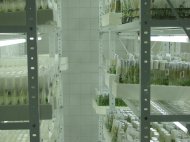Many people and couples at present face the difficulty related to the fact they are unable to have children in traditional way. Thanks to diverse complications they find themselves in complicated situation, as they have everything to guarantee a child appropriate growth and conditions for quick improvement, but the woman may not become pregnant. That’s the reason why, the medicine contemporarily has developed different solutions that aim is to provide similar people an opportunity to have their child they have always dreamed about.
An example that still is referred to plenty discussions is IVF abroad. The reason why this alternative is a term of debate between for instance Catholic Church and other groups of people is, firstly, because plenty egg cells that have been fertilized, are wasted during this process or stored in non-humanitarian way. One of the most crucial arguments of the first group of people is that improving acceptance for this kind practices leads to the fact that the life, which is recommended to be the most important value, can be simply manipulated.
Nonetheless, on the other hand, the couples, who also do their best in order to prepare the best possible conditions for their children to grow up correctly, also have their point. A child is usually an element that makes marriages be substantially stronger and reasonable as they are arranged in order to build a healthy and stable environment for the children to live and develop (visit this link). Therefore, even though IVF abroad is surely an alternative that is not accepted inter alia by the Church, we need to also remember that in substantial number of cases it is a solution that might realize the dreams of responsible parents and make their marriage be even better.

Źródło: http://www.flickr.com
Taking everything into consideration, above presented arguments regards IVF abroad only prove that concerning in vitro there is a requirement for a dialogue concerning its pros and cons, as both sides are, to some extent, right. Cooperation between both sides and healthy pressure on developments in this area might end up in the fact that this solution would guarantee no risk for the fertilized egg cells.